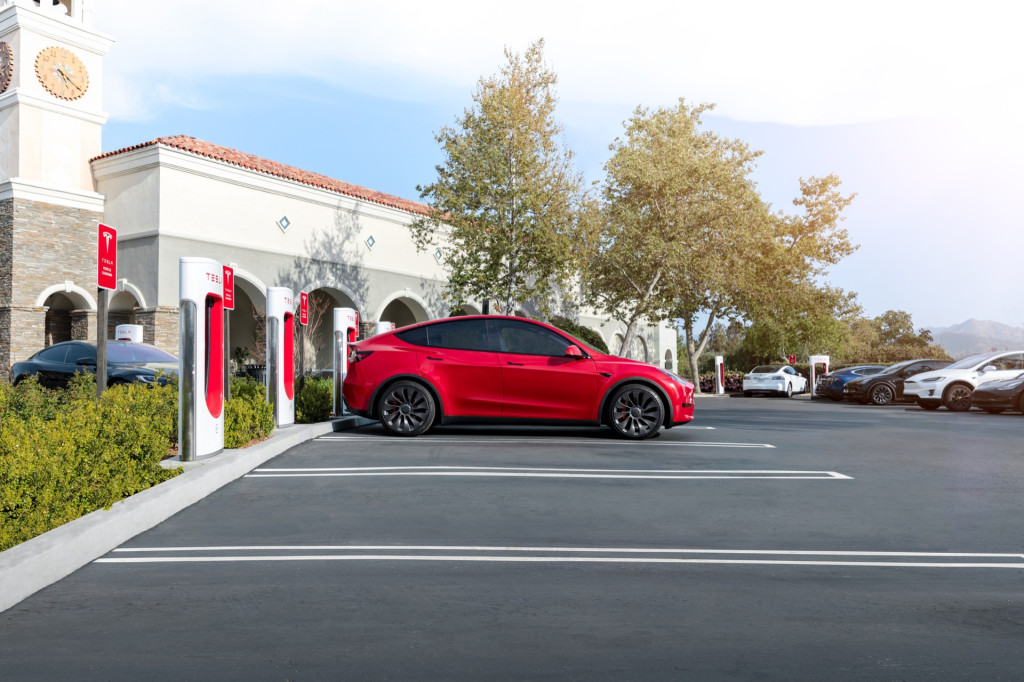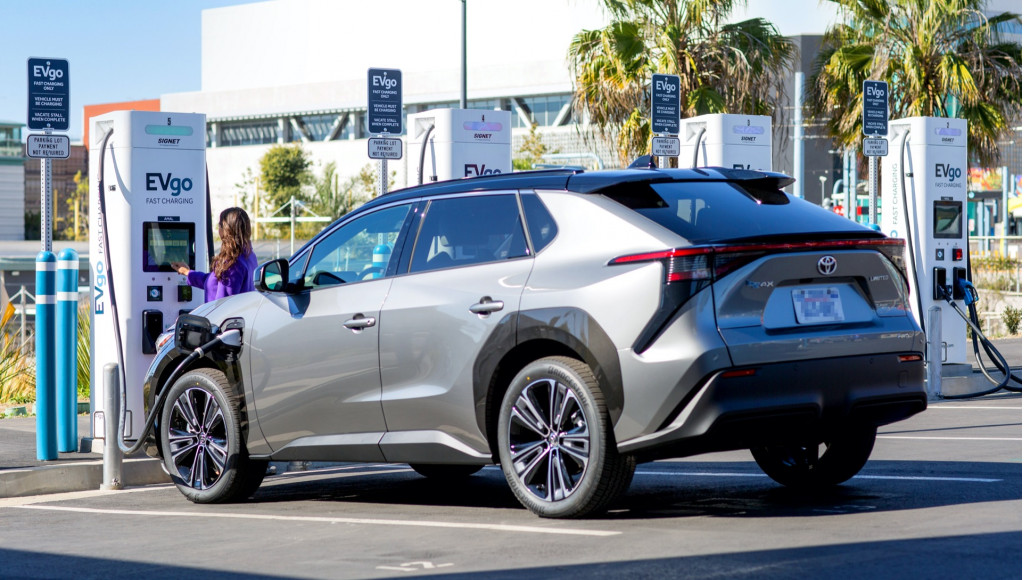
[ad_1]
It appears EV drivers who get free quick charging are taking full benefit of it.
People who quick cost free of charge keep plugged in practically twice so long as those who pay, based on the U.S. Division of Vitality (DOE). Evaluation of information from 2.4 million charging periods over a three-year interval, from Jun. 30, 2020, to Jun. 30, 2023, confirmed that the common paid charging session lasted 42 minutes and consumed 22 kwh of power. The typical free charging session was one hour and 18 minutes, and consumed 42 kwh.
The information doesn’t embody information from Tesla’s Supercharger community. It is primarily based on the EVWatts dashboard, a DOE undertaking managed by Energetics consulting and utilizing a self-selected subset of EV homeowners, aiming at higher understanding charging patterns. It now contains information from 50,712 cost ports, 14.16 million periods, and greater than 249 terawatt-hours of power.

Tesla Supercharger
The outcomes won’t immediately recommend that the associated fee is what retains individuals plugged in longer, but it surely does underscore that congestion might be extra of a difficulty when charging is free—or when homeowners is likely to be charging to a better stage than they want. Tesla as an illustration lately has added a “congestion charge” geared toward boosting throughput at busy charging stations.
The EV fashions that supply limitless fast-charging are restricted, although. The Lucid Air will get it for 2 years on Electrify America, and the Nissan Ariya and the Toyota bZ4X get it for a 12 months on EVgo. Additionally the BMW i7 provides limitless Electrify America charging for 3 years. In any other case, for probably the most half, free fast-charging choices are capped at half-hour per session.

2023 Toyota bZ4X at EVgo charging station
It does not value lots to cost an EV. And it is value noting that gasoline autos value as much as six instances extra to maintain stuffed, in comparison with EV charging for a similar mileage. However in some areas electrical energy prices could also be sufficient to affect these with free fast-charging to cease and plug of their automobile as an alternative of charging at house—significantly throughout electrical energy worth hikes.
Different homeowners could merely have a low stage of consciousness about house charging potentialities, and won’t be charging on the fee they doubtlessly may. A 2021 J.D. Energy examine discovered that many EV homeowners had been unaware of charging choices, in addition to potential incentives for putting in a charger at house.
[ad_2]